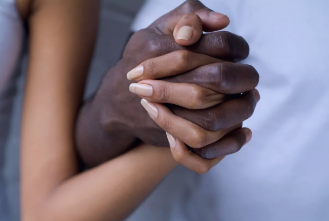By Sivonna Stringham, Resident in Counseling
Here’s a brief history of slavery: first documented in 3500 B.C. in Mesopotamia with the Code of Hammurabi. Jumping forward to 1526, the British Empire invaded African territories, took people from their homes and families, then sold them to the Thirteen Colonies in America. In 1619, Jamestown, Virginia, was recognized as the starting place for slavery in America. In 1865, slavery was “officially abolished” in every state of the United States, two years after the Emancipation Proclamation. However, there were loopholes and contradictions to the amendments that abolished slavery. For example, the 13thAmendment allowed for slavery through the prison system, a practice which continues to this day. Finally, June 19, 2021, America federally recognized a time of liberation for African Americans and their enslaved ancestors. What effects did those 246-339 years of slavery have on the descendants of those enslaved? One potential consequence is Post-Traumatic Slave Syndrome, or PTSS.
What is PTSS? Dr. DeGruy explains that PTSS is “a condition that exists as a consequence of multigenerational oppression of Africans and their descendants resulting from centuries of chattel slavery- a form of slavery which was predicated on the belief that African Americans were inherently/genetically inferior to whites.” The racist ideologies embedded into the fabric of society contribute to the systemic oppression of a group of people, who don’t look or act the same way as the majority of “White America”. When people are exposed to harmful situations and experiences over generations, they may develop a trauma response. Dr. Joy DeGruy coined the term “Post-Traumatic Slave Syndrome” or PTSS, which is a survival behavior found in African Americans in the United States. Her book about PTSS can be found here.
For centuries, Black people, and other minority groups, have been systematically oppressed. This video gives a comprehensive breakdown of the history of slavery, which is rarely discussed in American public schools. Despite what some would like to believe, racism did not end with the civil war. Black people are still judged and ridiculed and perceived as dangerous and immoral. This is largely due to the implicit biases instilled in all of us, which perpetuates the unconscious belief that the dominant culture is normal and acceptable, while any deviation from the norm is “bad” or “sinful” or undesirable. Black people have to think about every move they make, how they can keep themselves safe, and how they can minimize their presence to draw less attention to themselves. This behavior is called hypervigilance, which is a symptom of trauma. According to Dr. Joy DeGruy’s theory of PTSS, the negative impact of generational trauma and racial oppression can lead to vacant esteem, “feelings of hopelessness, depression and a general self-destructive outlook.”
Juneteenth is a time to raise awareness about the effect that white supremacy in America has had on enslaved people and support People of Color and marginalized communities with as much genuineness and understanding as possible. Additionally, Juneteenth is a time to recognize that Black people are also human and deserve to be treated as such. Juneteenth is a celebration, a milestone, and a new chapter for people to finally be free. Juneteenth is also considered the second Independence Day.
If you or someone you know is showing signs of trauma or PTSS, reach out to get the help you need. You can make an appointment with Sivonna by calling (540) 315-7018 or emailing sivonna@counseling-connect.com. As always, we look forward to connecting with you!
Sources:
https://www.joydegruy.com/post-traumatic-slave-syndrome
https://www.history.com/topics/black-history/slavery#

